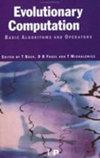使用模糊逻辑的超参数控制:自适应模糊粒子群优化算法的演化策略。
IF 3.4
2区 计算机科学
Q2 COMPUTER SCIENCE, ARTIFICIAL INTELLIGENCE
引用次数: 0
摘要
启发式优化方法(如粒子群优化法)取决于其参数,以便在特定问题类别中实现最佳性能。启发式算法的一些改进旨在优化过程中调整这些参数。我们提出了一种利用连续模糊反馈控制来设计此类适应策略的新方法。模糊反馈提供了一个简单的界面,在优化过程中对探测器进行采样,并将参数反馈给优化器。探测结果通过事先优化的模糊过程转化为参数,从而在训练基准上实现性能最大化。利用这一框架,我们系统地建立了 127 种不同的模糊粒子群优化算法,在模糊控制下最多可有 7 个参数。与传统 PSO 及其一些最佳参数控制变体相比,这些新设计的算法表现出更优越的性能。在 CEC 2020 的单目标约束数值优化竞赛中,报告了这些算法的性能。此外,在 CEC 2011 的实际应用场景中,两种特定的控制方法因其有效性和可靠性而备受瞩目,表现值得称赞。本文章由计算机程序翻译,如有差异,请以英文原文为准。
Hyperparameter Control Using Fuzzy Logic: Evolving Policies for Adaptive Fuzzy Particle Swarm Optimization Algorithm
求助全文
通过发布文献求助,成功后即可免费获取论文全文。
去求助
来源期刊

Evolutionary Computation
工程技术-计算机:理论方法
CiteScore
6.40
自引率
1.50%
发文量
20
审稿时长
3 months
期刊介绍:
Evolutionary Computation is a leading journal in its field. It provides an international forum for facilitating and enhancing the exchange of information among researchers involved in both the theoretical and practical aspects of computational systems drawing their inspiration from nature, with particular emphasis on evolutionary models of computation such as genetic algorithms, evolutionary strategies, classifier systems, evolutionary programming, and genetic programming. It welcomes articles from related fields such as swarm intelligence (e.g. Ant Colony Optimization and Particle Swarm Optimization), and other nature-inspired computation paradigms (e.g. Artificial Immune Systems). As well as publishing articles describing theoretical and/or experimental work, the journal also welcomes application-focused papers describing breakthrough results in an application domain or methodological papers where the specificities of the real-world problem led to significant algorithmic improvements that could possibly be generalized to other areas.
 求助内容:
求助内容: 应助结果提醒方式:
应助结果提醒方式:


